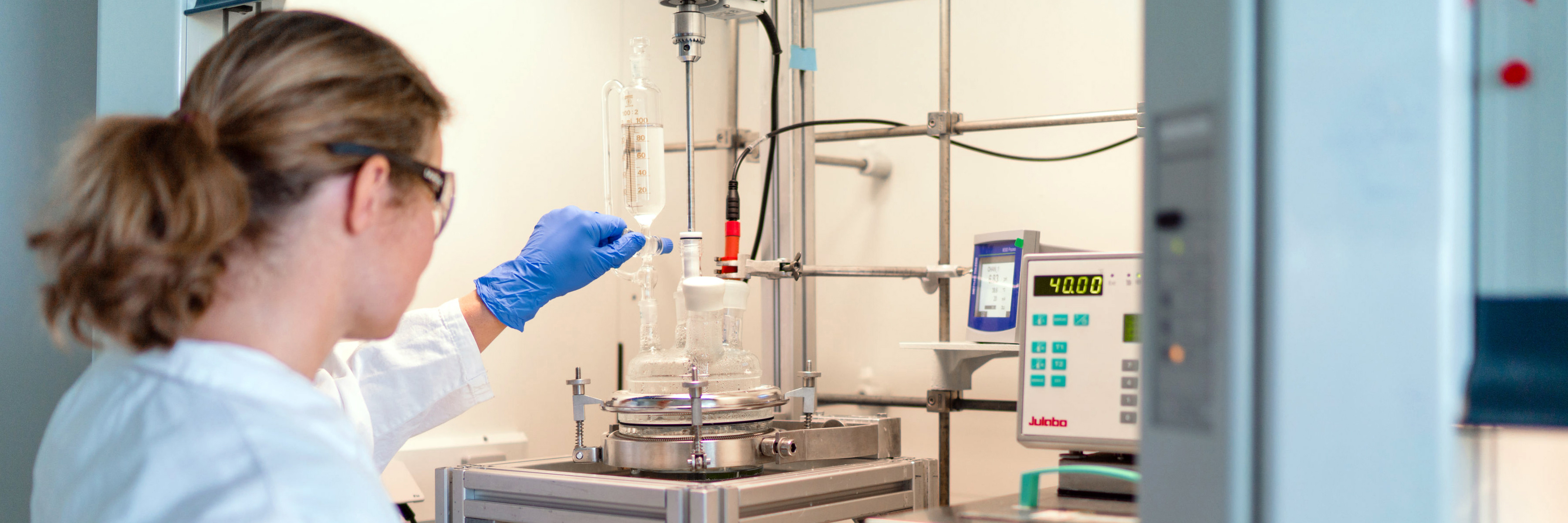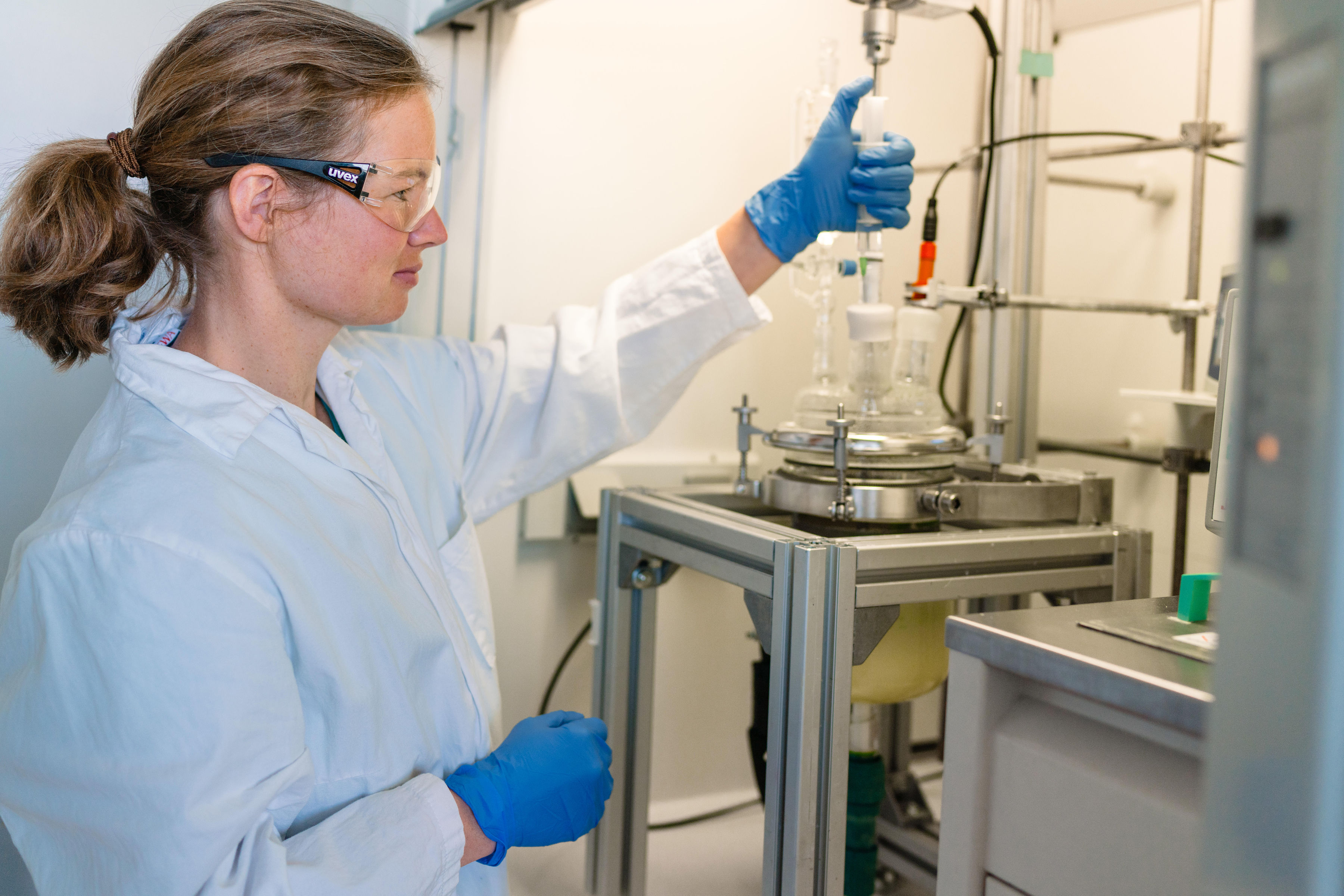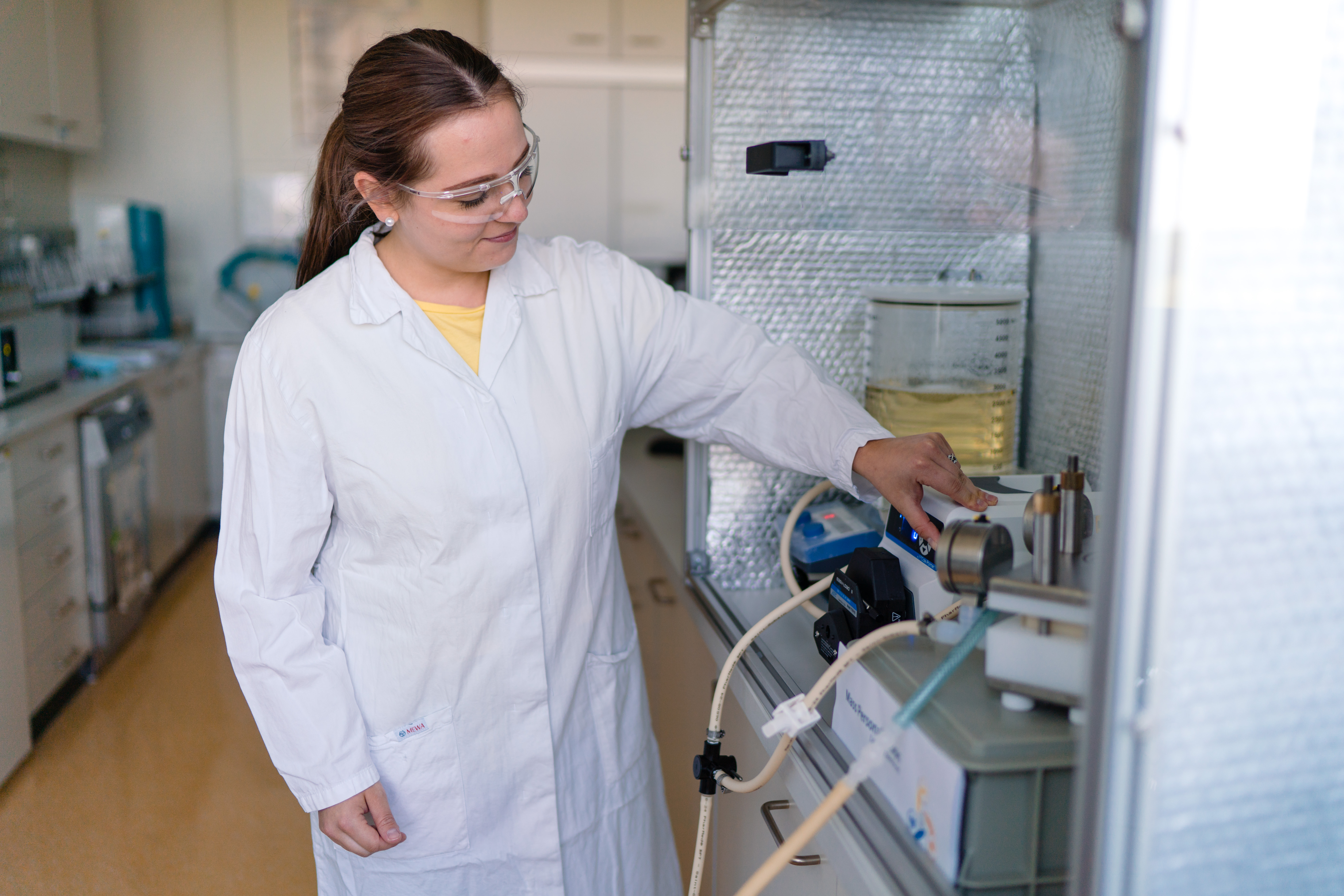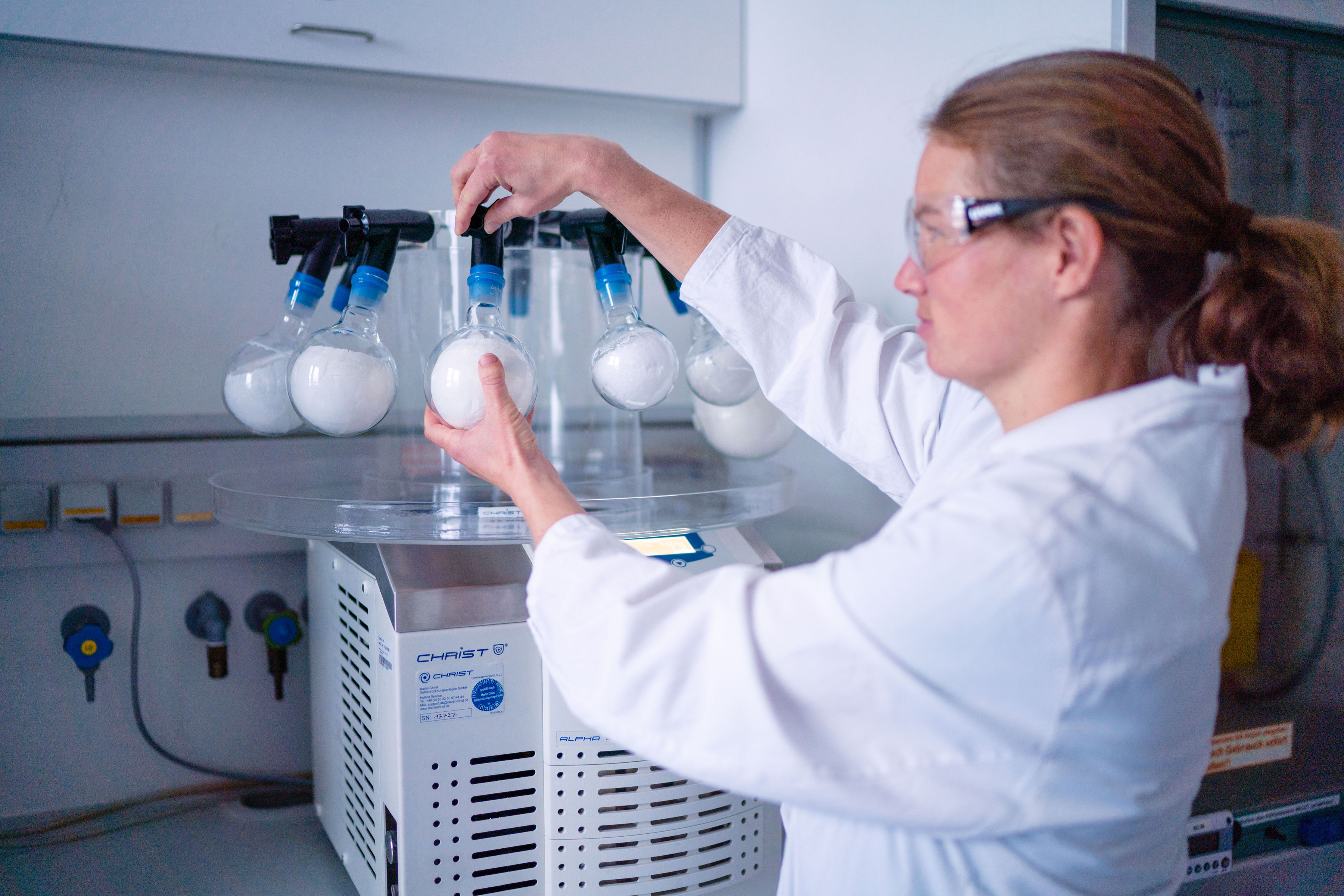Through chemical modification, we specifically adapt biopolymers, such as gelatin, chitosan or inulin, to different requirements. By adding various chemical functions, such as methacrylic groups, thio groups and benzophenones, we can change, for example, the viscosity, solubility or charge of the biopolymer in a targeted manner, making processes more sustainable and efficient.
Modification of biopolymers
Modification process
In order to achieve optimal conversion and variable degrees of modification of the biopolymers, various parameters can be adjusted as desired during modification, such as the temperature, the pH value through the use of a buffer or a titrator, or even the dosage of the reagents. Furthermore, we use the possibility of modification under inert gas or vacuum (for oxygen-sensitive reagents) or also under UV exclusion (for light-sensitive reagents).
Various purification options, such as dialysis or tangential flow filtration, also guarantee rapid elimination of unwanted impurities in the product. Low-temperature drying processes such as freeze-drying or spray-drying ensure gentle drying of the modified biopolymers and enable the product to be obtained in various forms, e.g. as a powder.
In addition, the modifications can be carried out in different scales, from a few milligrams to 100 grams, depending on the biopolymer.
Applications
By attaching crosslinkable or hydrophobic groups, more stable and insoluble systems can be created, among other things. For example, modified inulin can be used in drug delivery systems for the encapsulation of active ingredients, or modified chitosan can be used in the production of functional water-repellent layers on textiles. The modification of biopolymers is also of interest for printing and 3D printing processes, as it allows, among other things, the viscosity to be adjusted independently of temperature.
 Fraunhofer Institute for Interfacial Engineering and Biotechnology IGB
Fraunhofer Institute for Interfacial Engineering and Biotechnology IGB


